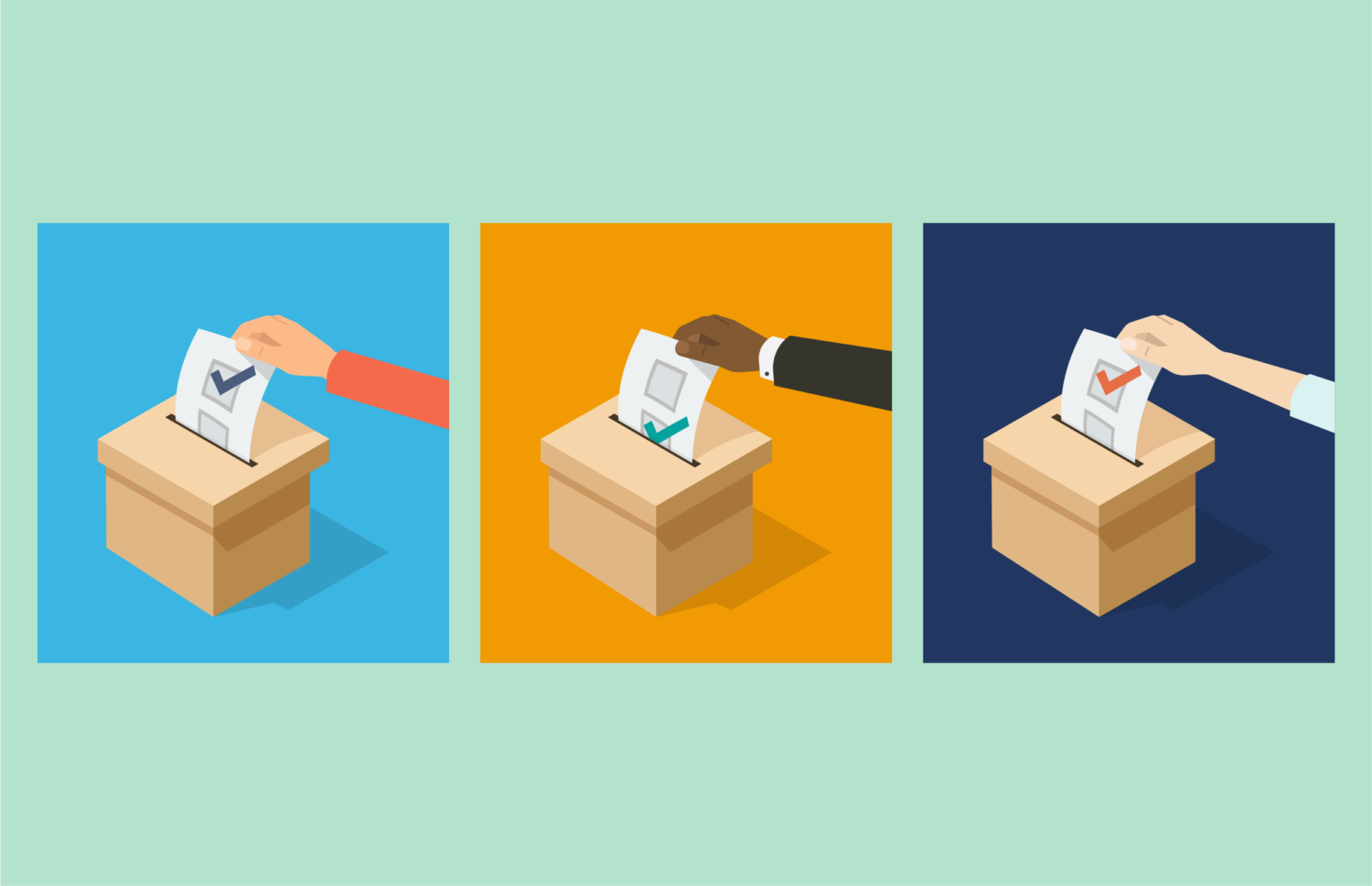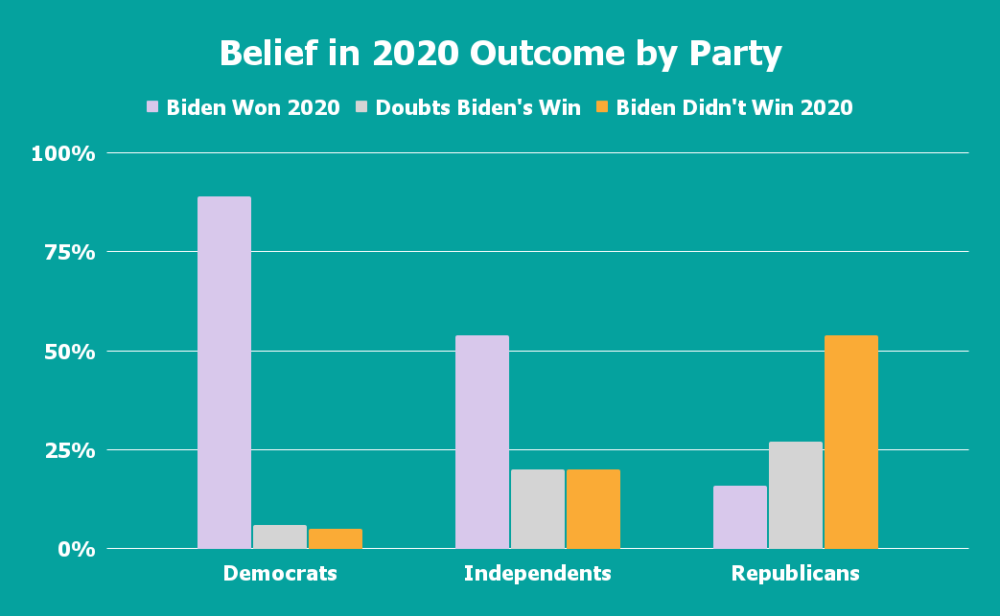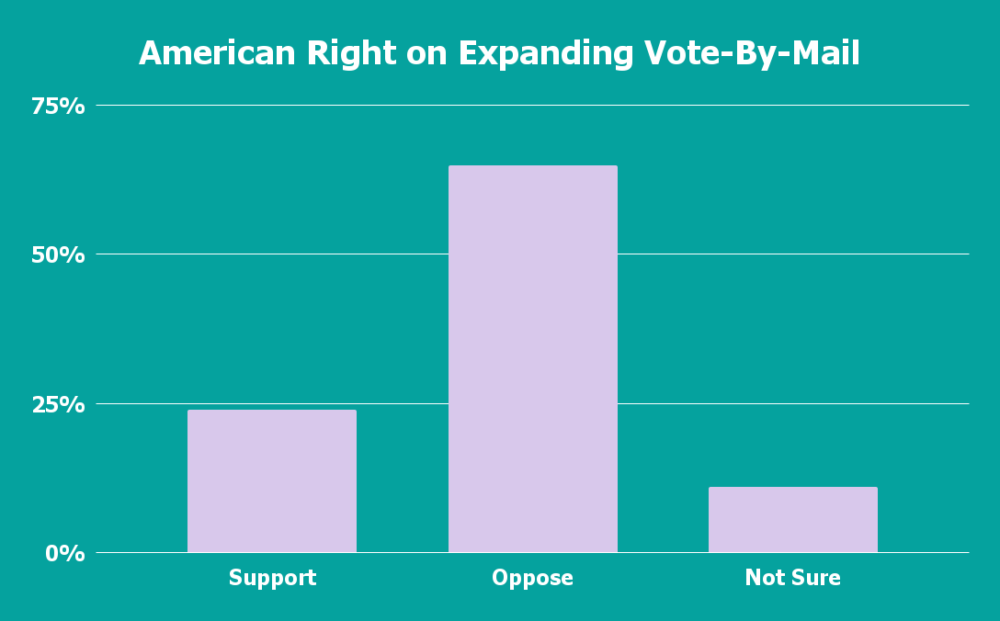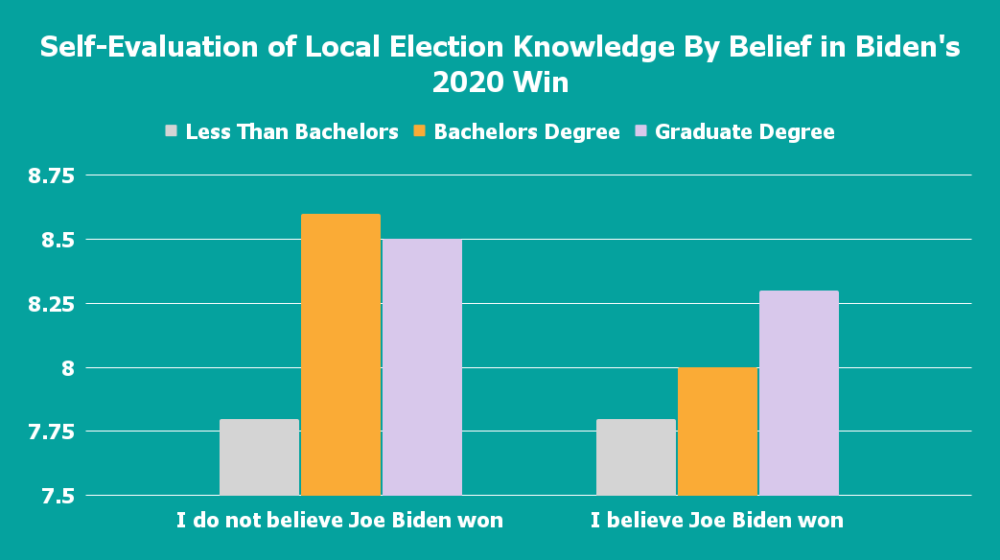Defusing Election Disinformation June 12, 2022
The belief that former President Trump won the 2020 election is fueled by a large-scale disinformation campaign with potentially disastrous consequences. As the Jan. 6 hearings play out, we ask: What impacts do election conspiracies have on our voting process, and how can we mitigate and combat election mistrust?

1. The Current Picture on Distrust in 2020
Distrust in the outcome of the 2020 elections remains widespread within the Republican party. Our recent nationwide survey found that over half (54%) of Republicans believe that Joe Biden did not win the 2020 elections, while a further one in three (27%) express doubts about the outcome.
These findings from April 2022 suggest a troubling increase in 2020-skepticism among Republicans, when taking into account a comparable survey conducted back in January by Yougov; 46% of Republicans believed that Joe Biden’s victory was not legitimate, while an additional 22% believed that it was probably not legitimate.
Share this report

2. Vote-By-Mail Has Been A Particular Target of Election Mistrust
Our research on the American Right shows that expanding vote-by-mail is the group’s least preferred way to expand voting access, a trend that’s a feature of post-2020 public opinion.

As many of our partners advocate, vote-by-mail (VBM) is arguably more secure than in-person because it generates a greater “paper trail.”
VBM requires more steps to successfully execute than in-person voting, and the introduction of expanded vote by mail in 2020 resulted in opportunities for exploitation by bad actors looking to erode trust in the 2020 outcome.
As a result, this year, election administrators and outside voter education groups –many of whom we work with–have stepped up efforts to educate voters on the process. Some also implemented greater VBM transparency measures such as ballot tracking–a measure that we identified in 2020 research as a means to increase trust in VBM.
3. Disinformation Gives Voters False Confidence
We found in a recent nationwide survey that voters on average rate their election knowledge at an 8 on a 10-point scale. On this point, reality doesn’t align with perception.
For example, those who believe the “Big Lie” self-evaluated their knowledge of local elections higher than those who do not.
This finding is not driven by less-educated voters overestimating their election knowledge; those who believe the Big Lie with bachelor’s and graduate degrees self-evaluated their knowledge the highest of all. It is likely that election disinformation is also a form of “diseducation.” In other words, those who are most bought into election conspiracies are also those who believe they know the most about elections.

Data-in-Action
Voter education efforts are critical to blunt the impact of election disinformation. When Americans understand the process, and the layers of verification, they are more likely to trust that it works as intended. Otherwise, they will seek to understand the process through sources that confirm their biases and reduce faith in our elections.
Electoral education needs to:
- Combat disinformation directly, such as explicitly noting a conspiracy and debunking it
- Protect against new disinformation by supporting voter education efforts, so that voters have a better grasp of the way elections are conducted in their counties
- Reach skeptical voters where they’re coming from through distribution by trusted messengers via sources that they frequently consult.
Citizen is currently studying how this kind of education — like these “Myth Busters” from the Maricopa County Elections Department — impacts election-related disinformation beliefs among certain demographics of voters. We’re also studying the use of pre-butting disinformation so voters are more aware when they’re being targeted.
By using the right counter-messages and most effective messengers — as well as educating Americans into becoming the messengers — we are supporting an ecosystem of partners to demystify and build trust in the seemingly complicated election process.
If you have any questions don’t hesitate to reach out. Enjoy Citizen’s Data for Democracy series? You can find past installments here.
Republicans More Likely to Preserve Democracy?
Fox News recently released a poll suggesting voters believe “Republicans are more likely to ‘preserve democracy’ than Democrats,” drawing a quizzical reaction from those who view GOP leaders as posing a severe democratic threat. Looking a level deeper, the claim is technically supported by the data, but one should understand it better before jumping to grand conclusions:
